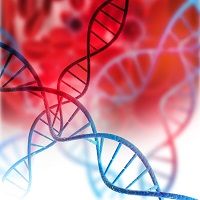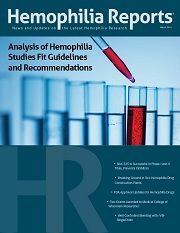Two Grants Awarded to Medical College of Wisconsin Researcher
Researchers discovered a clinically translatable gene therapy protocol, which is a gene delivery system that introduced the production of therapeutic clotting proteins in platelets, so that the inhibition of inactivating antibodies is avoided.

In May, Qizhen Shi, MD, PhD, of the Medical College of Wisconsin in Milwaukee received a four year, $1.5 million grant from the National Institutes of Health’s National Heart, Lung, and Blood institute. The grant is to continue Shi’s work in researching blood platelet gene therapies for the treatment of hemophilia A.
Shi is also an investigator at the Blood Research Institute at BloodCenter of Wisconson, where she focuses on finding therapies for hemophilia A patients. Previously, Shi has worked on therapies including inactivating antibodies. According to a news release, the investigative team discovered a clinically translatable gene therapy protocol, which is a gene delivery system that introduced the production of therapeutic clotting proteins in platelets, so that the inhibition of inactivating antibodies is avoided.
“The development of inhibitory antibodies against [blood clotting factors] is not only a severe and important complication of protein replacement therapy, but also a major concern in gene therapy of hemophilia A,” Shi continued in the press release. “Generation of such inhibitors might potentially preclude gene therapy for hemophilia A. In this project, we propose to investigate a novel gene therapy approach that will provide therapeutic FVIII protein and induce immune tolerance for hemophilia A.”
At the International Society on Thrombosis and Haemostasis Congress in Toronto, Canada in June, Shi was also recognized with the Bayer Hemophilia Award. Shi was one of 17 hemophilia investigations around the globe to receive the grant as part of the Bayer Hemophilia Award Program (BHAP).
BHAP grants are intended to provide funds to investigate various projects, including nanomedicines, new methods to improve inhibitor detection in hemophilia patients, platelet gene therapy, and bioengineering factor VIII replacement therapy, a second press release stated. Shi’s team intends to use the grant to test whether virus mediated platelet specific gene transfer can introduce immune tolerance in hemophilia B mice with inhibitors and provide therapeutic factor IX proteins, the statement continued.
“I’m honored to be selected as a 2015 BHAP award winner,” Shi said at the time. “The support from Bayer will help me continue my research into the role gene therapy might potentially play in helping patients manage their hemophilia.”
Shi added that the research the team plans to conduct research which they believe could be promising for gene therapy targets for hemophilia B patients, including those with inhibitors.
